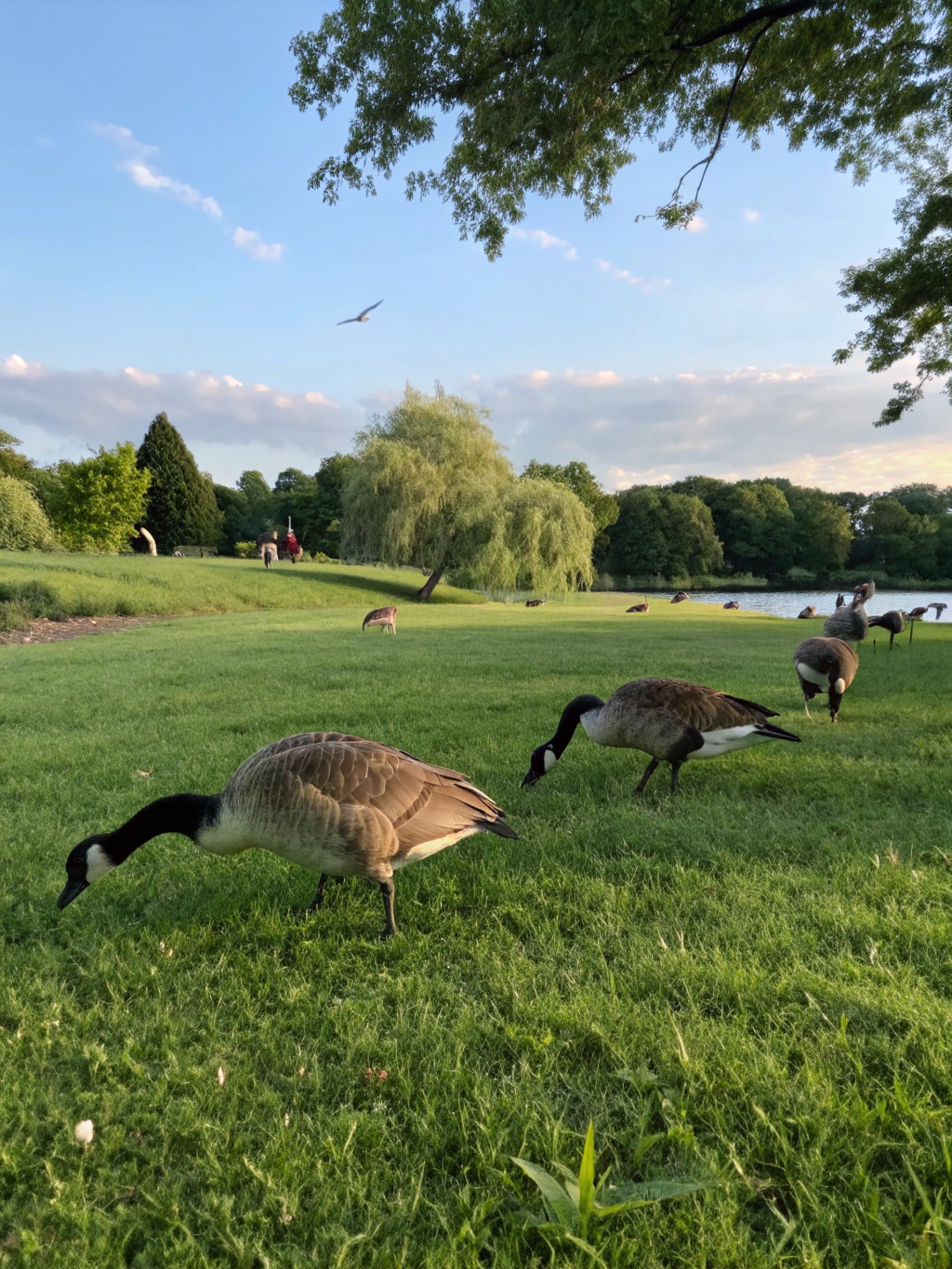What Do Geese Eat? Complete Food Guide For Wild & Pet Geese
Table of Contents
Introduction
Did you know that geese can eat up to 3 pounds of grass every single day? That’s equivalent to a small human eating about 20 pounds of salad! Whether you’ve spotted wild geese at your local park or are considering adopting these magnificent birds as pets, understanding what do geese eat is crucial for their health and wellbeing. These remarkable waterfowl have specific dietary needs that vary between wild and domesticated settings, and feeding them properly ensures they thrive in any environment.
You might be surprised to learn that while geese are commonly seen grazing on grass, their diet is actually much more diverse and adaptable. Let’s explore the complete food guide for both wild and pet geese to ensure these beautiful birds get the nutrition they need.
Key Information Snapshot
• Geese are primarily herbivores that consume:
- Grass and other vegetation (main diet component)
- Grains such as wheat, corn, and oats
- Aquatic plants and algae
- Berries and small fruits
- Some insects and small aquatic creatures (occasionally)
• Wild geese: Forage naturally for grasses, seeds, berries, and aquatic plants
• Pet geese: Require a balanced diet of commercial feed, fresh vegetables, and controlled grazing
• Daily water intake: Essential for digestion and overall health
• Seasonal diet changes: Different nutritional needs during migration, breeding, and winter months
Detailed Explanation
Wild Geese Diet
In natural habitats, geese eat primarily plant-based foods. During spring and summer, they consume fresh grass, clover, and other tender vegetation. Their strong bills are perfectly designed for tearing grass and their specialized digestive systems process high-fiber foods efficiently.
Interestingly, wild geese adjust their diet seasonally. During fall migration, they increase their consumption of high-energy foods like berries, seeds, and grains to build fat reserves essential for long flights. Research shows that Canada geese can gain up to 20% of their body weight before migration!
Aquatic environments provide another important food source. Geese will consume various water plants, algae, and occasionally small aquatic invertebrates. These water-based foods provide essential minerals and variety to their diet.
Pet Geese Diet
Domesticated geese have similar nutritional needs to their wild counterparts but require a more managed approach to feeding:
Commercial Waterfowl Feed: Forms the foundation of a pet goose diet, providing balanced nutrition with approximately 16-18% protein.
Fresh Greens: Offer chopped lettuce, spinach, kale, and other leafy vegetables daily. These provide essential vitamins and minerals that supplement commercial feed.
Controlled Grazing: Allow pet geese to graze on pesticide-free grass regularly, as it’s their natural behavior and provides fiber.
Grains and Seeds: Offer cracked corn, wheat, oats, and barley as supplemental foods, but limit quantities to prevent obesity.
Fruits: Provide occasional treats like berries, chopped apples, and grapes (cut in half to prevent choking).
Related Facts or Tips
Did you know? Geese have no teeth! Instead, they have serrated edges on their bills and a muscular gizzard that uses small stones the geese swallow to grind food.
Tip: Never feed bread to geese. While commonly practiced, bread provides little nutritional value and can lead to malnutrition and a condition called “angel wing” that permanently deforms their wings.
Seasonal consideration: During breeding season, female geese need extra calcium for egg production. Crushed oyster shells or specialized layer feed can help meet this need.
Water importance: Always provide fresh water in containers deep enough for geese to dip their entire bills, as this helps them clean their nostrils and maintain bill health.
Common Questions (FAQs)
Can geese eat kitchen scraps?
While geese can eat some kitchen scraps like vegetable peelings and leftover salad, avoid giving them processed foods, anything high in salt, sugar, or fat, and definitely no moldy items.
How much should I feed my pet geese?
Adult geese typically need about 170-230 grams (6-8 ounces) of commercial feed daily, plus grazing. Monitor body condition regularly and adjust portions accordingly.
Do geese need grit in their diet?
Yes, geese need access to small stones or commercial grit to help their gizzard break down food properly, especially when they can’t forage naturally.
Can geese eat meat?
While geese are primarily herbivores, they occasionally consume small insects or worms in the wild. However, you should not intentionally feed them meat as their digestive systems are adapted for plant materials.
Practical Applications
Creating a Balanced Feeding Schedule
For pet geese, establish a consistent feeding routine:
- Morning: Main portion of commercial feed and fresh greens
- Midday: Access to grazing areas
- Evening: Small portion of grains and seeds
DIY Goose Treat Recipe
Make a healthy goose treat by mixing:
- 1 cup rolled oats
- ½ cup chopped seedless grapes
- ¼ cup chopped leafy greens
- A sprinkle of black oil sunflower seeds
Serve occasionally as a supplement to their regular diet.
Mistakes to Avoid
- Overfeeding bread and crackers: These fill geese up without providing proper nutrition.
- Ignoring seasonal needs: Not adjusting diet during breeding, molting, or winter months.
- Insufficient water: Failing to provide clean, fresh water at all times.
- Feeding inappropriate foods: Chocolate, avocado, onions, and garlic are toxic to geese.
- Allowing access to potentially toxic plants: Eliminate access to foxglove, rhododendron, and other poisonous plants in grazing areas.
Conclusion
Understanding what do geese eat is fundamental whether you’re observing wild geese or caring for them as pets. A proper diet consisting primarily of grasses, supplemented with grains, vegetables, and occasional fruits ensures these magnificent birds maintain optimal health and vitality. Remember that seasonal adjustments, clean water, and avoiding harmful foods are just as important as providing the right nutrition.
Have you observed geese in your area? Try noticing their natural feeding habits and share your experiences in the comments below! For more information on caring for waterfowl and other animals, explore our related articles.





